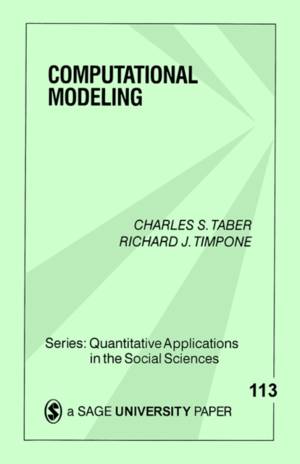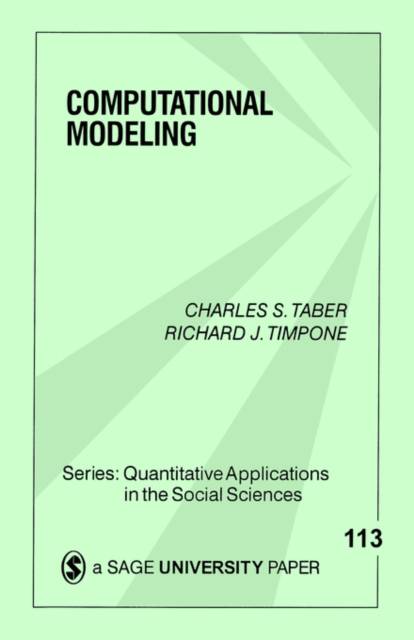
Bedankt voor het vertrouwen het afgelopen jaar! Om jou te bedanken bieden we GRATIS verzending (in België) aan op alles gedurende de hele maand januari.
- Afhalen na 1 uur in een winkel met voorraad
- In januari gratis thuislevering in België
- Ruim aanbod met 7 miljoen producten
Bedankt voor het vertrouwen het afgelopen jaar! Om jou te bedanken bieden we GRATIS verzending (in België) aan op alles gedurende de hele maand januari.
- Afhalen na 1 uur in een winkel met voorraad
- In januari gratis thuislevering in België
- Ruim aanbod met 7 miljoen producten
Zoeken
Omschrijving
Why model computationally? Because these methods allow researchers to combine the rich detail of qualitative research with the rigor of quantitative and formal research, as well as to represent complex structures and processes within a theoretical model. The authors treat computational methods, including dynamic simulation (Monte Carlo methods), knowledge-based models (semantic networks, frame systems, and rule-based systems), and machine learning (connectionism, rule induction, and genetic algorithms), as a single broad-based class of research tools and develop a framework for incorporating them within established traditions of social science research. They provide a concise description of each method and a variety of social science illustrations including four detailed examples. Common to most of these methods is a straightforward underlying approach: simulate the theory by running the program. Computational Modeling concludes with a discussion of ways to validate computational models.
Specificaties
Betrokkenen
- Auteur(s):
- Uitgeverij:
Inhoud
- Aantal bladzijden:
- 104
- Taal:
- Engels
- Reeks:
- Reeksnummer:
- nr. 113
Eigenschappen
- Productcode (EAN):
- 9780803972704
- Verschijningsdatum:
- 1/03/1996
- Uitvoering:
- Paperback
- Formaat:
- Trade paperback (VS)
- Afmetingen:
- 137 mm x 214 mm
- Gewicht:
- 131 g

Alleen bij Standaard Boekhandel
+ 155 punten op je klantenkaart van Standaard Boekhandel
Beoordelingen
We publiceren alleen reviews die voldoen aan de voorwaarden voor reviews. Bekijk onze voorwaarden voor reviews.









